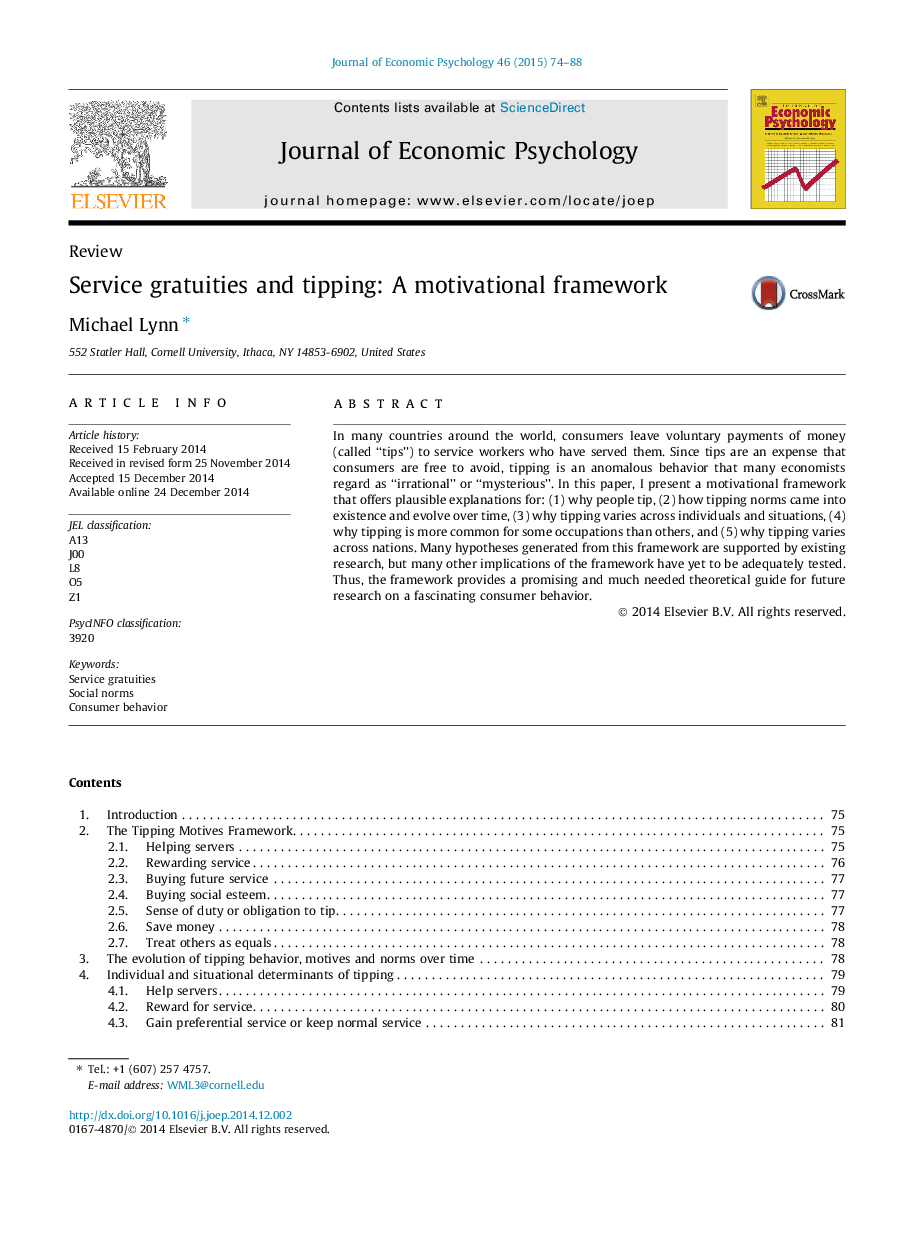| Article ID | Journal | Published Year | Pages | File Type |
|---|---|---|---|---|
| 884898 | Journal of Economic Psychology | 2015 | 15 Pages |
•Altruism, gratitude, future-service, status-seeking, and duty motivate tipping.•Cost considerations and egalitarianism curtail tipping.•These motives provide a framework through which to view many aspects of tipping.•Situational, occupational and national differences in tipping are explained.
In many countries around the world, consumers leave voluntary payments of money (called “tips”) to service workers who have served them. Since tips are an expense that consumers are free to avoid, tipping is an anomalous behavior that many economists regard as “irrational” or “mysterious”. In this paper, I present a motivational framework that offers plausible explanations for: (1) why people tip, (2) how tipping norms came into existence and evolve over time, (3) why tipping varies across individuals and situations, (4) why tipping is more common for some occupations than others, and (5) why tipping varies across nations. Many hypotheses generated from this framework are supported by existing research, but many other implications of the framework have yet to be adequately tested. Thus, the framework provides a promising and much needed theoretical guide for future research on a fascinating consumer behavior.
